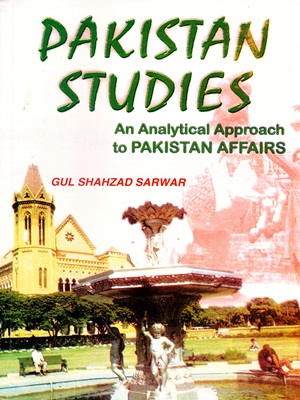
Week 13-14: Pakistan and the Muslim World
For many Pakistanis, various crucial developments in the 1990s came as a traumatic shock. Firstly, closure of the Pakistani Embassy at Kabul in early 1994, following intermittent attacks by factionalist Afghans, bewildered a population which, for more than a decade, had endured numerous hardships, including loss of numerous precious human lives and urban property by virtue of its playing a vanguard role in assisting Afghan resistance against the communists. Pakistanis were still hosts to millions of uprooted Afghans whom the world apparently seemed to have forgotten. With a turbulent and equally uncertain Afghanistan now assuming hostile postures, Pakistan's cherished dream of relinking itself with the newly independent Central Asian Republics (CARs) appeared to have been dashed to the ground. With the emergence of a Taliban-led regime in Kabul, Pakistani hopes were again revived yet the unabated internecine conflicts did not allow any breakthrough. 1 Secondly, in March 1994, the Pakistani government, despite euphoria about Indian-controlled Kashmir, 'suspended' its sponsorship of a resolution before the UN Human Rights Commission at Geneva censoring Indian policies in the Valley. It appeared that lacking tangible support from Muslim countries and other friends, especially due to lukewarm support from Iran and the People's Republic of China, Benazir Bhutto's government found it more prudent to withdraw an otherwise very mild resolution. Most Pakistanis, used to idealizing their relationship with China and the Muslim world, were caught unawares by these two major developments, and saw in them a reflection of the internecine polarity among the national leadership. Some attributed them to a changed post-Gulfwar realpolitik which had laid bare the thin base of trans-territorial idealism (a net component of the new world order) while others found in them the success of India's quiet and resolute diplomacy contrasted with an unchecked drift in Pakistan's foreignpolicy. After a few explanatory statements, Islamabad seemed to have resigned itself to a wait-and-watch policy, allowing regional developments to take their own natural course, and attention rather swung towards redefining the relationship with the USA, while, domestically both the government and opposition readied themselves for another bout in sheer negation. Thirdly, in late July 1996, a working group rearranging the 'reform agenda' for the UN deleted the Kashmir dispute from the Security Council's roster by defining it as one of several redundant issues.2 However, as mentioned in previous chapters, the BJP-led government in India decided to go nuclear by detonating five devices in early May 1998. Pakistan, initially, found itself on the horns of dilemma but eventually decided to follow India and carried out its nuclear tests in late May. With a new security configuration in nuclearized South Asia, the Kashmir dispute, very much to Indian discomfort, assumed centre-stage. Geopolitically, Pakistan, until recently, has played a role many times higher and more pronounced than its actual capabilities can support, despite being located in a sub-priority region, and the aforementioned challenging developments definitely demand a reevaluation of her foreign policy objectives and strategies. Intertwined with her domestic problems of governance, challenges in the arena of foreign policy remain the major threats to her security. Pakistan's geopolitical priorities since its inception have been geared mainly to safeguard its territorial integrity, enhance regional stability and obtain the socio-economic advancement of its inhabitants. Given its pre-1971 asymmetrical location on the two far ends of the South Asian sub-continent, with a hostile and many times larger neighbour in between, Pakistan's foreign and defence policies continuously attempted to ascertain a conducive geopolitical environment based on a credible balance of power in the region.3 Pakistan's precarious geopolitical environment, multiplied by its difficulties with India over unresolved disputes on princely states like Kashmir and dissensions on water distribution in the wake of a huge influx of millions of refugees fashioned her outward perceptions.4 While Pakistanis reaffirmed their commonalities with the Muslim world at large they equally tried to cultivate a world-wide appreciation of their country's vulnerabilities.


